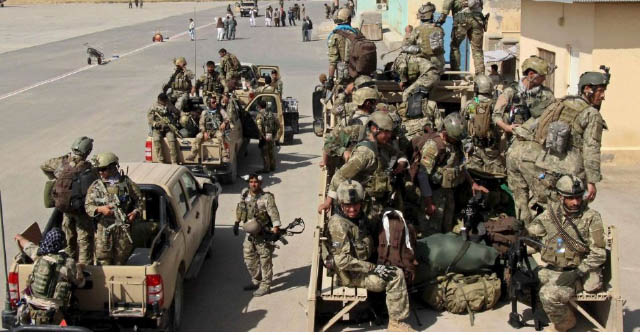KABUL - Two days after Taliban fighters launched a surprise attack and took control of the northern city of Kunduz, promises made by Afghan President Ashraf Ghani that his forces could quickly re-take the city have not been realized and reports on Wednesday reveal that U.S. Special Forces units are now on the ground engaging in the fight as new rounds of U.S. airstrikes continue.
Special forces from the U.S.-led military coalition in Afghanistan battled insurgents on Wednesday near the northern city of Kunduz that was captured by the Taliban this week, a coalition spokesman and Afghan official said.
It was the first report of on-the-ground clashes between Taliban militants and foreign troops supporting their Afghan allies during three days of sometimes heavy fighting for control of the strategic city of 300,000.
Kunduz is the first provincial capital to fall to the Taliban since the hardline Islamist movement was toppled from power in 2001.
Writing at his blog on Wednesday morning, historian Juan Cole argues the fall of Kunduz offers keys lessons for today while also speaking directly to the inherent flaws of U.S. foreign over the last fifteen years by symbolizing the "final collapse" of the failed nation-building program executed by former President George W. Bush.
"Those who want the US to go into Syria in a big way should just consider what the Kunduz events mean," writes Cole. "Fourteen years after the US went into Afghanistan, it still has not been able to stand up a successful army to which it could hope to turn the country over. How many orphans do the hawks want to adopt?"
In article that appeared in The Nation earlier this summer, Cole predicted that despite the acknowledged death of its leader Mullah Muhammed Omar, the Taliban would continue to make strategic battlefield gains if serious efforts weren't made to find a political solution for Afghanistan.
Without predicting the outcome of the current battle, Coles argues on Wednesday that the situation in Kunduz is likey to result in continued bleakness for those hoping that Afghanistan could be freed from the trappings of endless war and the presence of foreign troops on its soil.
Unfortunately, writes Cole, "The US response to the return of the Taliban will likely be to insist on keeping 10,000 men in Afghanistan, virtually forever. But that move sets up the paradox that it makes Ashraf Ghani look like an American puppet, and encourages even more young Afghan men to join the Taliban." (Reuters)

